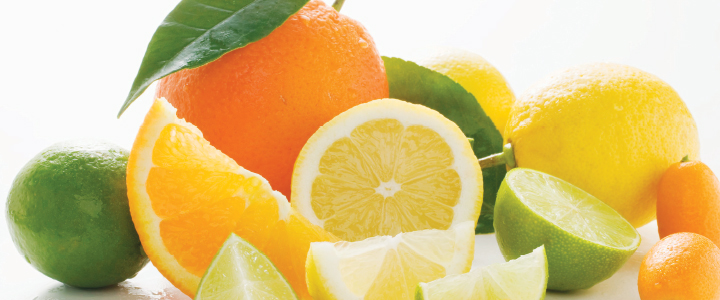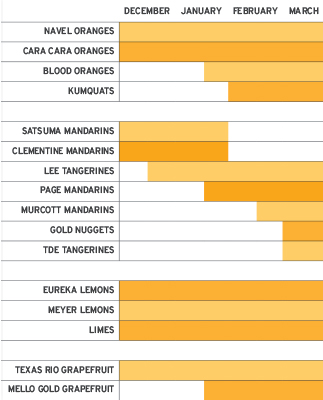A guide to winter citrus
This article was originally published in December 2014

The arrival of sweet, sunny citrus is proof that nature knows best. Just as we descend into the dark, dreary days of winter, citrus bursts onto the scene, offering bright flavors, bold color and immune system support.
From the first navel oranges to the final tangerine, we welcome more than 15 varieties of citrus into our produce department from December to March.* Juicy, tangy and full of zip, these fruit are fantastic eaten alone as a snack or incorporated into your cooking.
Loaded with nutrients, citrus provides more than 100 percent of the daily value for vitamin C. The fruit boasts plenty of antioxidants, can help reduce inflammation and heart disease risk, and offers good sources of fiber, potassium, folic acid and thiamine.
When selecting citrus, look for fruit that is heavy for its size — the more it weighs, the more juice you’ll find inside. Citrus will keep longer in the refrigerator, but if you plan on using it in a recipe, bring the fruit to room temperature, as it’s easier to extract the juice. The zest, on the other hand, can be kept in the freezer and used as needed.
* We consider these months peak citrus season. Certain fruit, such as lemons and limes, are available year-round.

